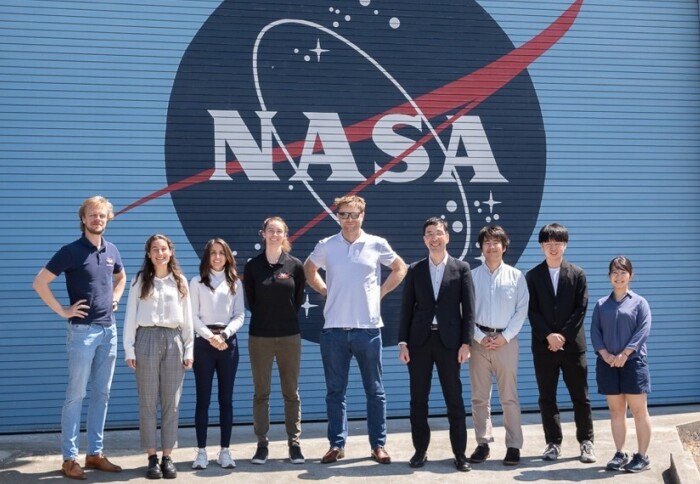Aeronautics student awarded prestigious VFF scholarship and NASA award
by Ayesha Khan

Aeronautics student awarded prestigious VFF scholarship and NASA award
Lidia Carós Roca receives prestigious VFF scholarship and NASA award for her work simulating flow over Martian helicopter rotors.
Aeronautics PhD candidate, Lidia Carós Roca, has achieved phenomenal success securing two awards for her contribution to research within the area of vertical flight.
Lidia received the Robert Head Scholarship from the Vertical Flight Society for her research into developing novel rotor blades for helicopters, so that they might overcome the unique challenges of Mars’ atmosphere.
Alongside Dr Oliver Buxton and Professor Peter Vincent, Lidia has also collaborated with the ROAMX (Rotorcraft Optimization for the Advancement of Mars Exploration) team at NASA. The team’s research efforts have recently been recognised with the NASA Group Achievement Award.
Martian helicopter design
Atmospheric conditions of Mars differ from Earth, with lower air density and lower sound speed. Such conditions require rotor blades to operate in a low-Reynolds-number compressible regime.
Unconventional airfoils with sharp leading edges and flat surfaces have shown promising results in terms of enhancing Martian helicopter performance. By combining high-order accurate Direct Numerical Simulations (DNS) using PyFR (www.pyfr.org) with Genetic Algorithms, Lidia has optimised triangular shaped airfoils to maximise lift and minimise drag in vertical flight.
These findings provide fundamental insights into how flow over Martian rotorblades that can be used to guide design of new and improved razorblades for a next-generation Martian helicopter.
Lidia recently presented her work on Martian helicopters at the Platform for Advanced Scientific Computing (PASC) Conference, winning a prize for the best poster.
Vertical Flight Foundation Scholarship
The Vertical Flight Society has been inspiring generations of students to pursue careers in vertical flight, through Vertical Flight Foundation (VFF) Scholarships, for over 45 years. The merit-based scholarship program has enabled students to obtain leadership positions in industry, academia and government.
ROAMX
The ROAMX project seeks to enhance rotorcraft capabilities on Mars through novel unconventional airfoils and rotor blades. Doing so will help pave the way for further scientific experiments and exploration of Mars’ surface and atmosphere. The new blade designs would also allow for future-generation Mars rotorcraft that offer improved payload capacity, speed and range.
Article text (excluding photos or graphics) © Imperial College London.
Photos and graphics subject to third party copyright used with permission or © Imperial College London.
Reporter
Ayesha Khan
Department of Aeronautics